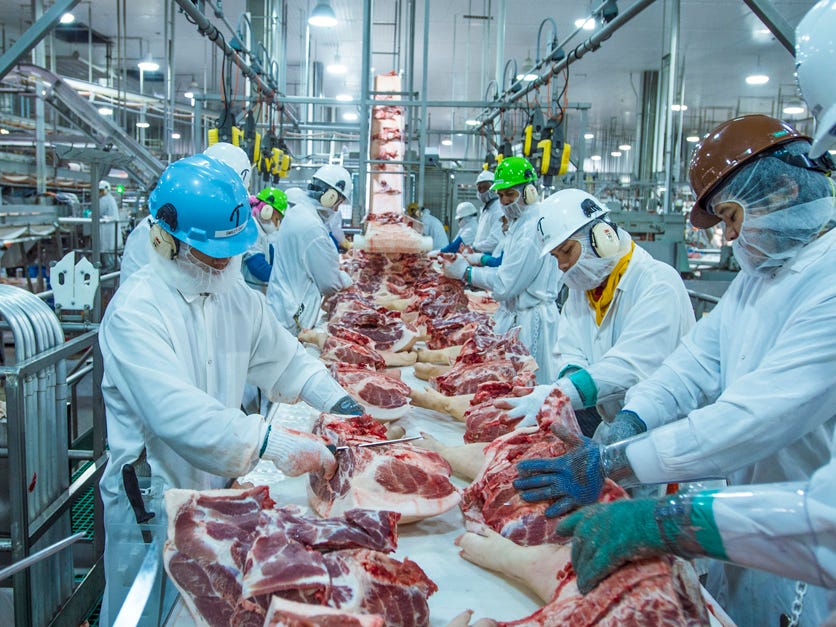🐄 The end of industrial meat
Health: In the midst of the pandemic, the industrial meat and poultry processing industry, where hundreds of essential workers stand shoulder to shoulder in enclosed spaces, has fallen into disarray. Large-scale meat processors - including Cargill, Smithfield, and Tyson - have watched their highly concentrated supply chains collapse. As of September 18th, among 419 U.S. animal processing facilities, there have been 39,000 reported positive COVID-19 cases and 185 reported worker deaths in 27 states. Meanwhile, 45% of meatpacking hot zones still remain concealed to the public.
In contrast, regenerative ranchers, such as Loren Poncia, owner of Stemple Creek Ranch, are surviving the upheaval while adapting to surges in demand for local goods. His regional supply chain, which is built upon respecting animals, workers, and the environment, remains secure. Yet the uptick in attention has not come without new challenges; to satisfy demand, Loren travels 200+ miles to work with a handful of USDA-approved meat processing facilities.
To overcome this bottleneck, ranchers are now forming co-operatives with their own mobile slaughter units. At the same time, policymakers are reexamining The PRIME Act, a bill that bypasses the USDA-inspected sites and provides small-scale growers with greater processing options nearby. If this federal policy passes, it will be the first step in supporting smaller, more resilient meat producers and systems.
Listen: In this episode of The Doctor’s Farmacy, Dr. Mark Hyman and Tom Newmark sit down to discuss how industrial agriculture has led to a loss of almost 50% of the fertile soil on the planet in the last 150 years. If current rates of degradation persist, all of the world’s topsoil could vanish within 60 years. To combat this crisis, Tom highlights the potential for holistic animal grazing to sequester carbon back into the soil, reduce farmers’ reliance on synthetic inputs, and create more nutrient-dense food.
Drink: Don’t forget to pick up a 6 pack of Patagonia ProvisionsLong Root Ale for your next socially-distanced barbeque. The food division of the outdoor apparel company recently teamed up with Hopworks Urban Brewery to create a beer blended with Kernza (a perennial grain grown using regenerative practices).
Perennial crops serve as powerful tools for farmers looking to protect soil from erosion and increase water infiltration. Kernza grain is a regenerative substitute for annual wheat, which can be incorporated into baked goods and beer or used as a whole grain like rice or barley.
Thanks for listening to us! Don’t forget to share this week’s harvest with your friends.
The Regeneration is brought to you by PastureMap | Soilworks | Wholesome Meats.


